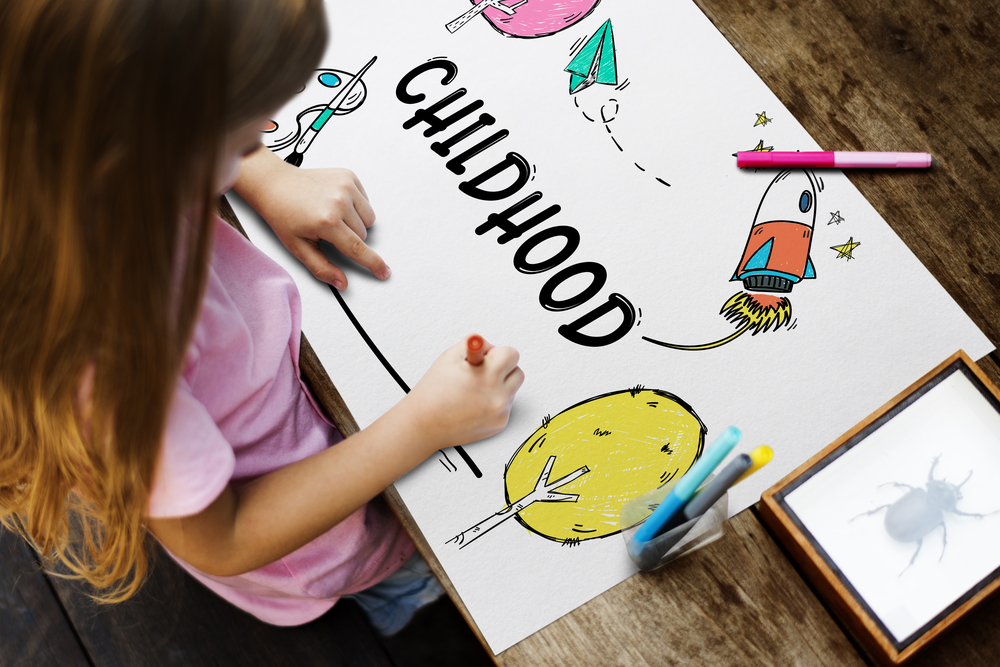Sentence formation Worksheets for Ages 3-9
6 filtered results
-
From - To
Enhance your child’s language skills with our engaging Sentence Formation Worksheets designed for ages 3-9. These fun, interactive worksheets help young learners develop their understanding of sentence structure, vocabulary, and grammar. Each activity encourages creativity while promoting critical thinking as children construct meaningful sentences. Perfect for both classroom and home use, our worksheets cater to various learning styles and abilities. Watch your little ones grow in confidence as they master essential language skills essential for effective communication. Explore this invaluable resource and support your child’s learning journey today! Printable and easy to use, our worksheets make learning enjoyable and effective.
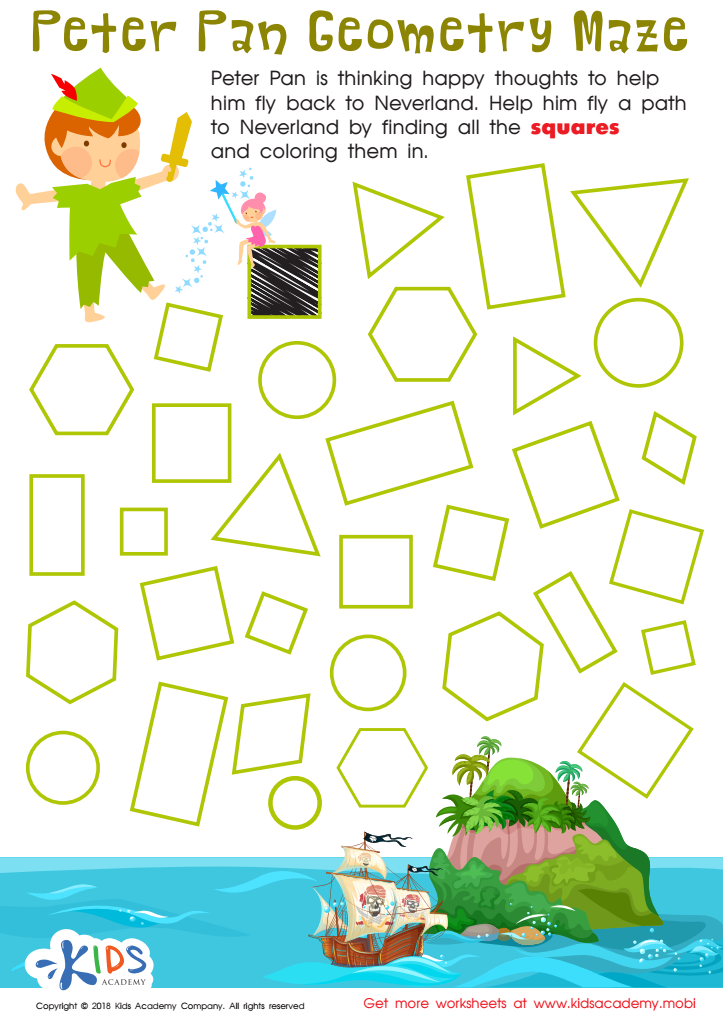

Peter Pan Worksheet
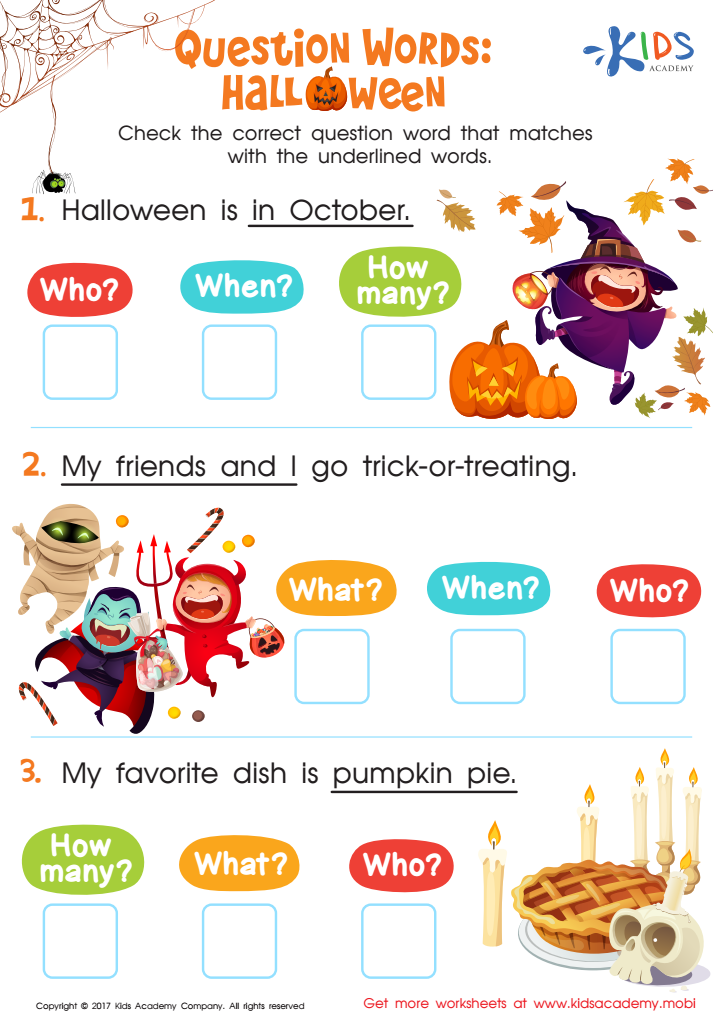

Question Words: Halloween Worksheet
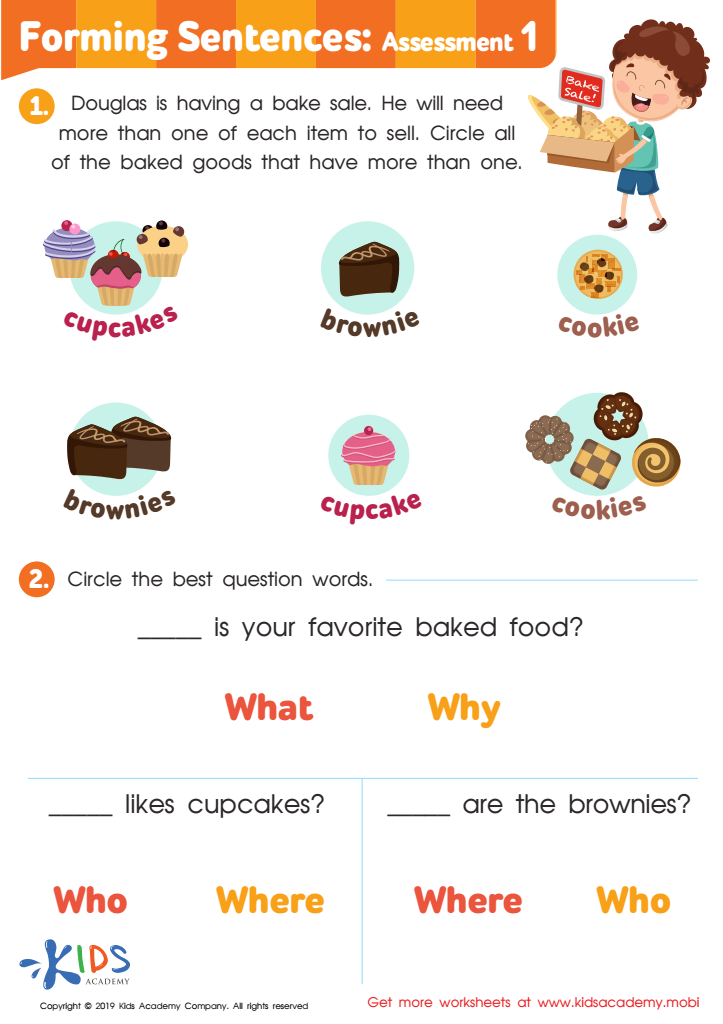

Forming Sentences: Assessment 1 Worksheet
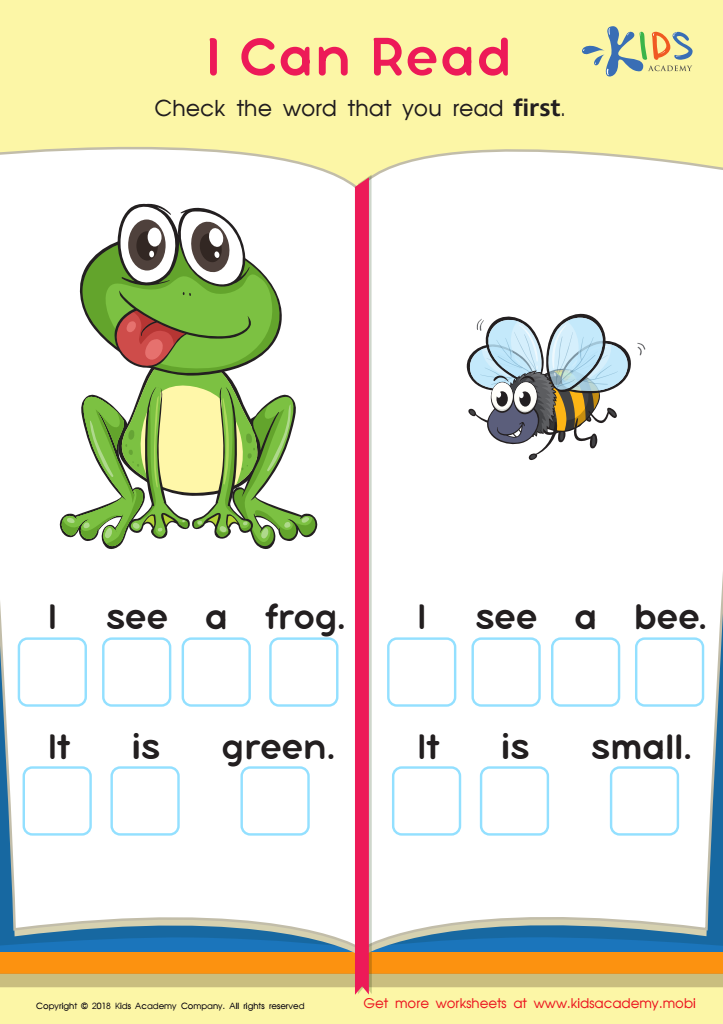

I Can Read Worksheet
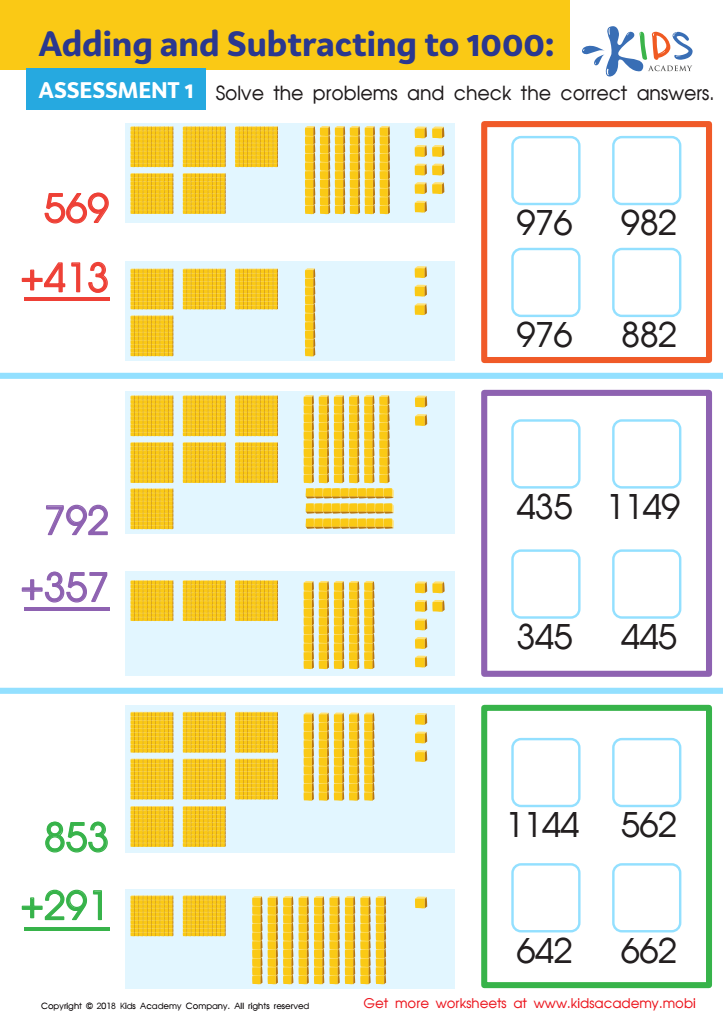

Adding and Subtracting to 1 Worksheet: Assessment 1
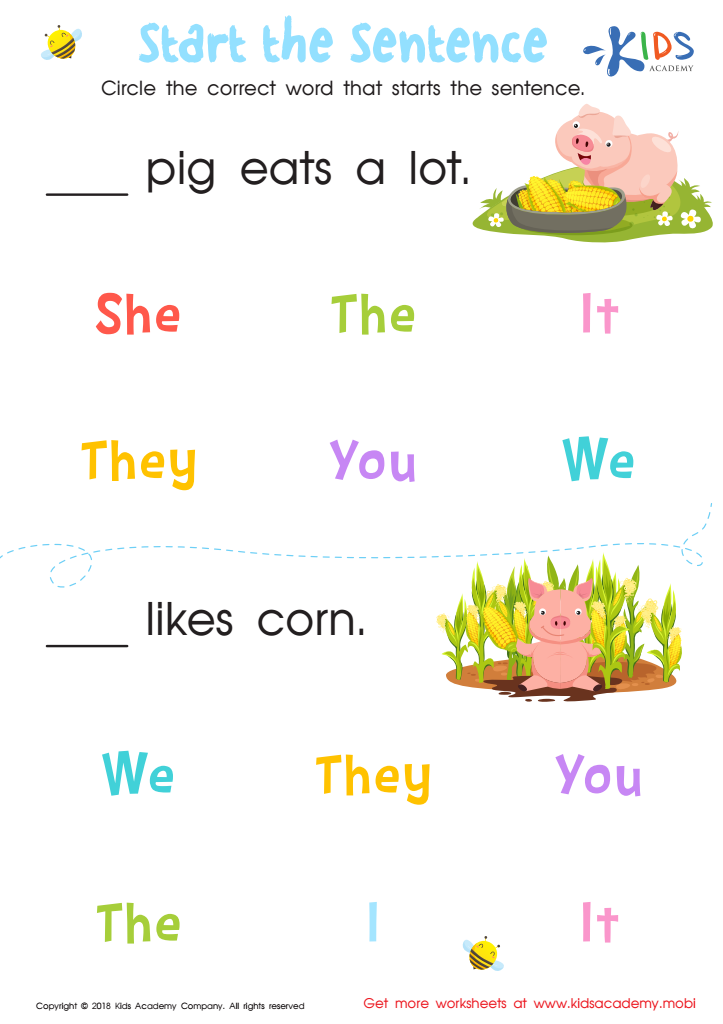

Start the Sentence Worksheet
Sentence formation is a fundamental aspect of language development for children aged 3 to 9, and its significance extends beyond mere communication skills. At this developmental stage, children are like sponges, absorbing language concepts that will shape their literacy and overall academic success. By fostering sentence formation skills, parents and teachers help children express their thoughts, feelings, and ideas more effectively, promoting confidence in their communication abilities.
Moreover, understanding how to construct sentences enhances children's reading and writing skills. When children can form sentences properly, they can better comprehend texts and engage with written material, setting a strong foundation for future literacy. This also encourages cognitive development, as they learn to organize their thoughts logically.
Encouraging sentence formation nurtures creativity and critical thinking, while also facilitating social interactions. Children who articulate their ideas clearly are more likely to engage in meaningful conversations with peers and adults, which can enhance their social skills.
In summary, prioritizing sentence formation in early childhood education is essential for both academic proficiency and interpersonal communication. It empowers children to become confident communicators and learners, paving the way for their future success. Parents and teachers should embrace this vital aspect of language learning with enthusiastic support.

 Assign to My Students
Assign to My Students





